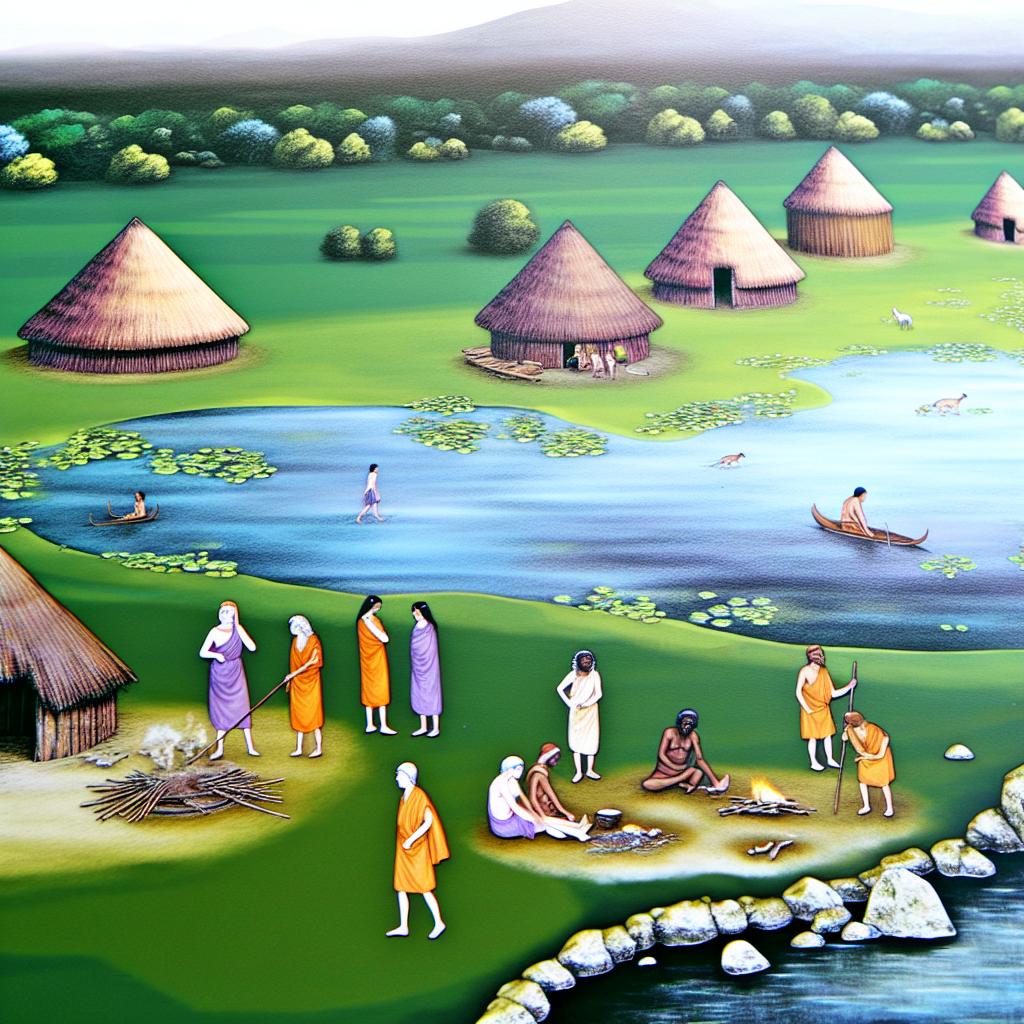The Importance of Lakes in Ancient Settlements
The study of ancient civilizations often highlights the significant role that proximity to water bodies, particularly lakes, played in the establishment and sustainability of settlements. This connection between lakes and human habitation exists due to a combination of ecological, economic, and cultural factors, each contributing uniquely to the development of ancient societies.
Ecological Benefits
Ancient people found lakes to be a crucial component of their daily lives, with lakes providing essential natural resources. Estimating the importance of water bodies begins with recognizing their role as a consistent source of fresh water for various purposes, such as drinking, cooking, and irrigation. These needs were paramount since water accessibility directly impacted crop yield and agricultural sustainability. Additionally, many lake regions were surrounded by fertile soil, which further promoted agriculture, allowing for the sustenance of large communities. These ecological benefits made areas near lakes desirable locations for settlement.
Flora and Fauna
The ecological richness of areas surrounding lakes extends to a diverse range of flora and fauna. Lakes bolstered the diets of ancient peoples by providing fish, a reliable food resource and a staple in numerous ancient cultures. The abundance of fish contributed to balanced diets and was particularly valuable in impoverished agrarian periods due to crop failure or unfavorable weather conditions.
Moreover, the vegetation surrounding lakes created ideal habitats for various game animals. This attracted different wildlife, offering additional subsistence through hunting opportunities. The presence of both plant and animal resources near lakes meant that communities could draw from a variety of nutritional sources, using these materials to create implements and clothing, further supporting the economic and social structures of ancient societies.
Economic Advantages
Beyond their ecological benefits, lakes served as centers of economic activity in ancient times. They were not only sources of sustenance but also pivotal in the facilitation of trade and transportation. These water bodies acted as natural passageways encouraging the movement of goods and people between regions. As a result, settlements located near lakes frequently evolved into bustling trade hubs.
Trade and Commerce
The presence of lakes allowed for the establishment and maintenance of trade routes, increasing connectivity between distant regions. This network facilitated the exchange of physical goods as well as intangible assets such as ideas, technologies, and cultural practices. This exchange was vital in spreading knowledge and innovation, which enriched civilizations that participated in trade. For instance, boats and other watercraft designed for transporting goods can be seen as direct inspirations drawn from the navigable potential of lakes.
The role of commerce due to trade was another significant factor in the permanency of settings near lakes. Economic prosperity often led to larger settlements because thriving commerce attracted more individuals seeking to exploit new market opportunities, broadening the demographic spread and cultural horizons of these areas.
Cultural and Social Impact
Lakes were more than mere resources for survival and trade; they held deep cultural and spiritual significance for many ancient communities. This cultural importance reflects on how lakes featured prominently in the myths, rituals, and religious practices of many societies.
Spiritual Significance
Lakes were often considered to have inherent spiritual significance, with many cultures viewing them as sacred places or home to deities. These beliefs frequently inspired the construction of temples and places of worship along the shores of these water bodies. Such associations shaped the social structures and traditions of communities residing near lakes, reflecting on interpersonal interactions, governance, and community management.
This spiritual relationship with lakes also had an echo in art and literature, where water bodies were represented as subjects holding supernatural attributes, integrated into spiritual narratives that shaped moral guidelines and societal norms. The interweaving of belief systems with everyday life centered around lakes thus established traditions that often continue to echo through history.
Archaeological Evidence
The rich archaeological record surrounding ancient lake settlements offers a window into early human development. Excavations in these areas have unearthed a variety of artifacts and structures, providing insights into the ingenuity and adaptability of ancient peoples in leveraging lake resources. For more comprehensive information and current findings on this topic, visit Archaeology Magazine.
Artifacts discovered in such areas frequently demonstrate the technological innovations and communal adaptations necessary for exploiting lake resources. These findings reveal both practical applications for managing daily life and deeper cultural insights into how people viewed and interacted with their environments.
Conclusion
The intricate relationship between lakes and ancient settlements represents a tapestry woven from necessity, opportunity, and belief. Lakes provided the resources needed for sustenance and stimulated economic activities through trade and transportation. Culturally, they served as symbols of spiritual significance, shaping societal traditions and beliefs. Consequently, understanding this connection between lakes and human settlement offers valuable perspectives on human innovation and adaptability throughout history. It unveils patterns of environmental interaction crucial to understanding civilization development across millennia.
